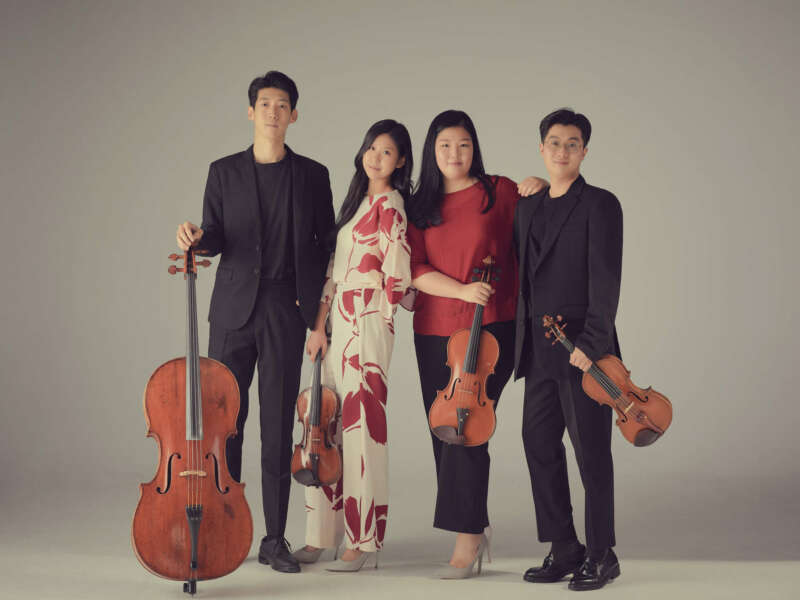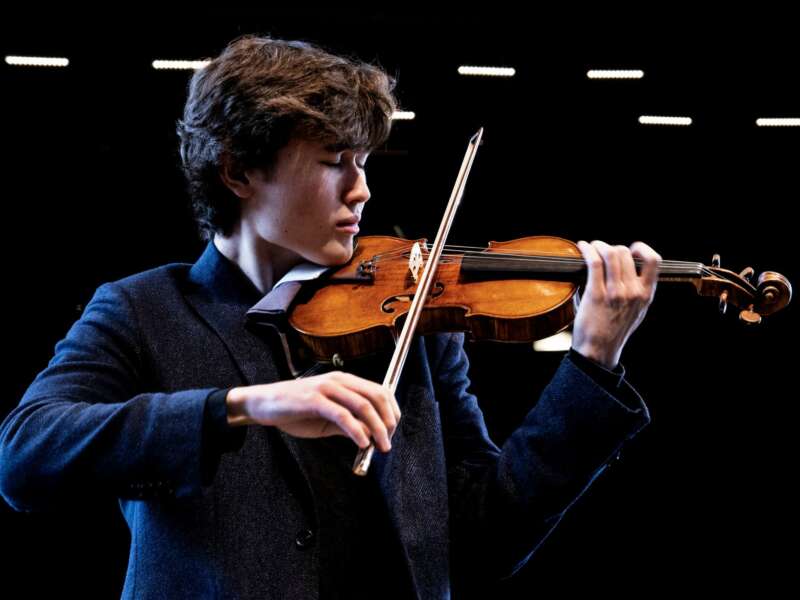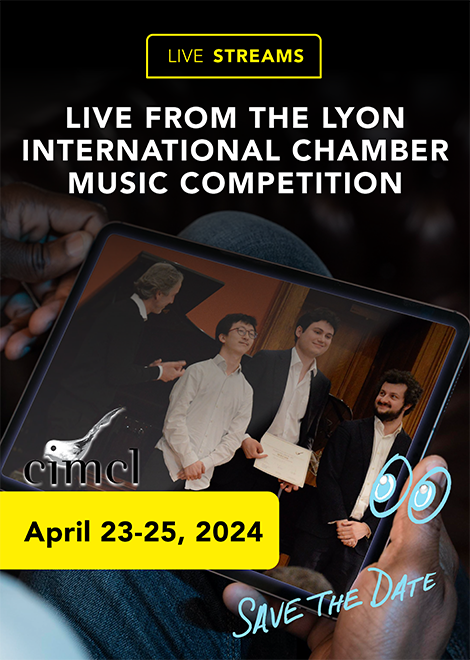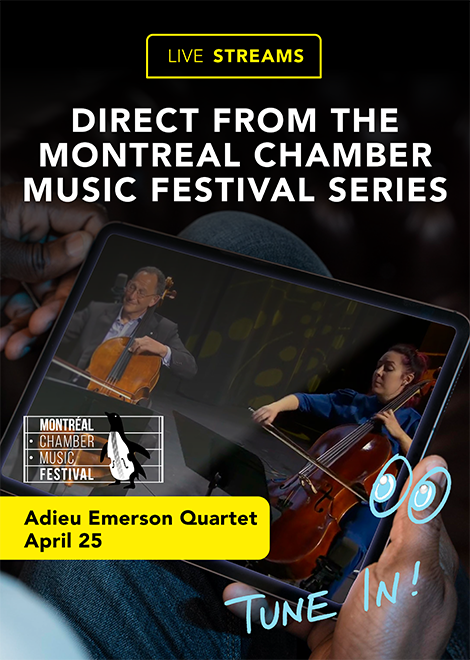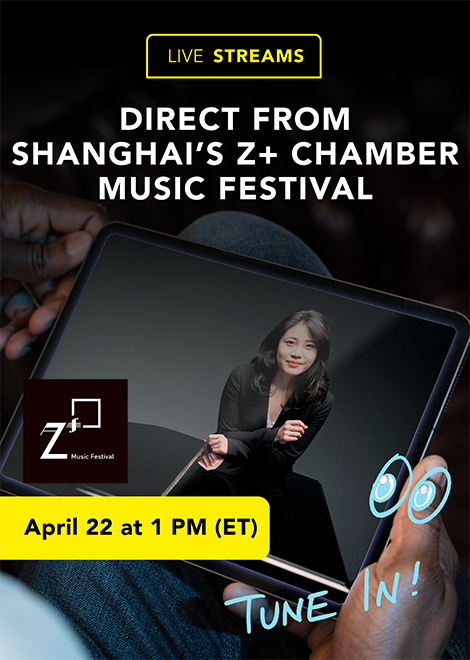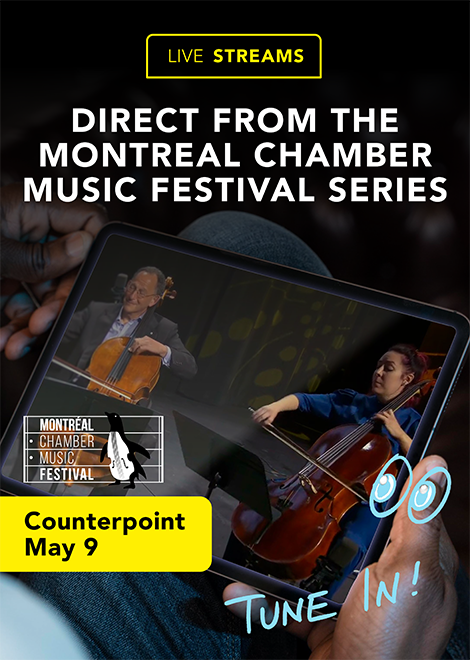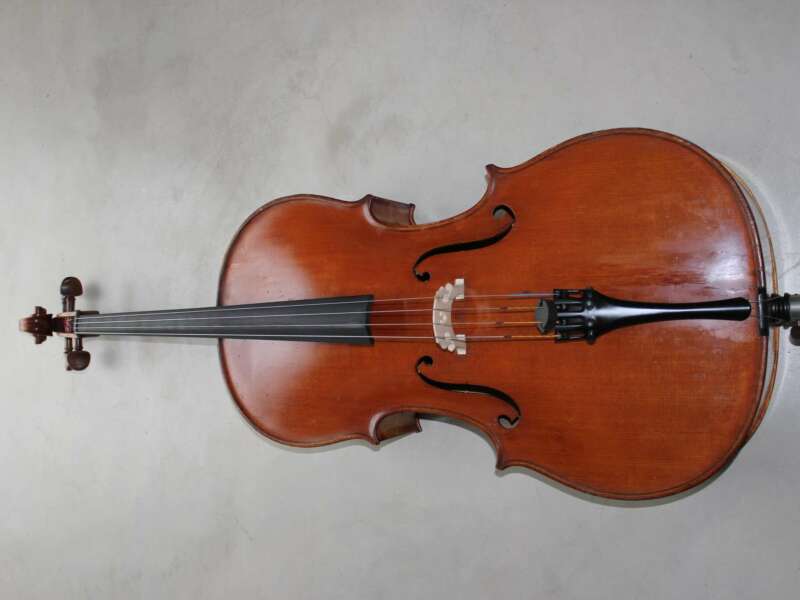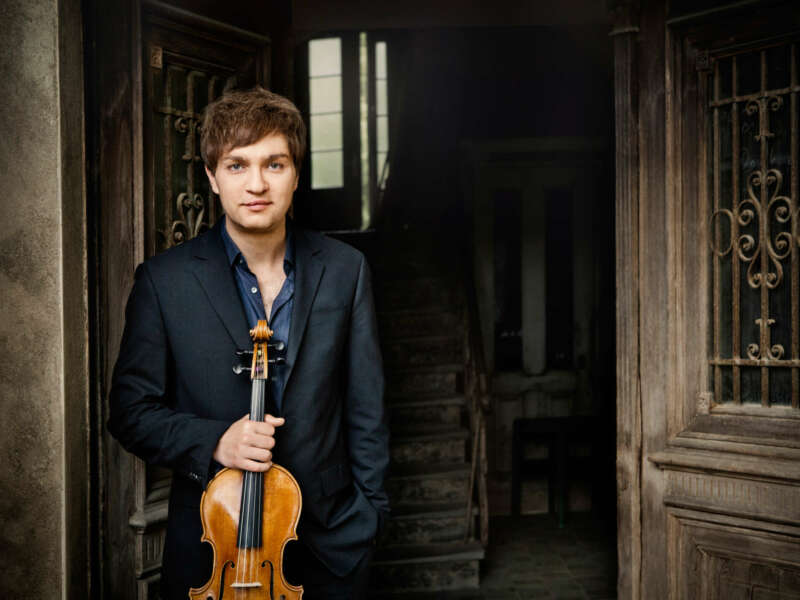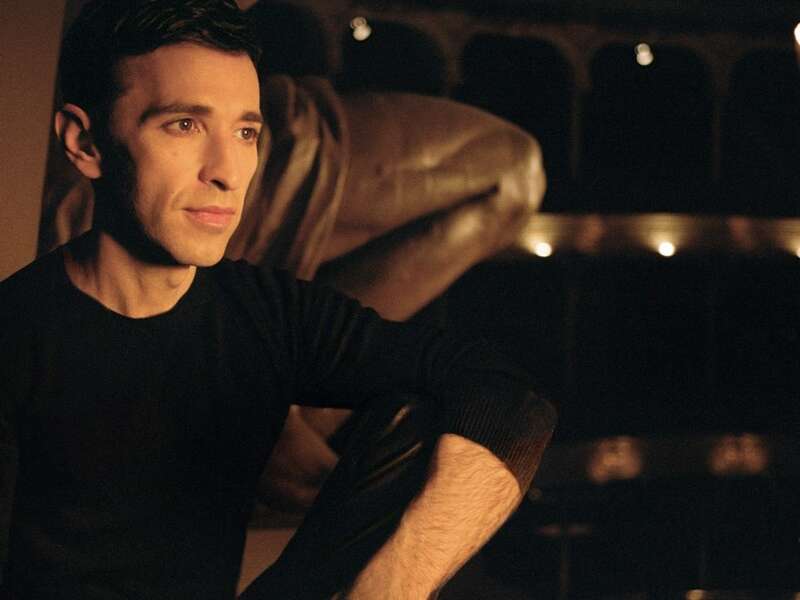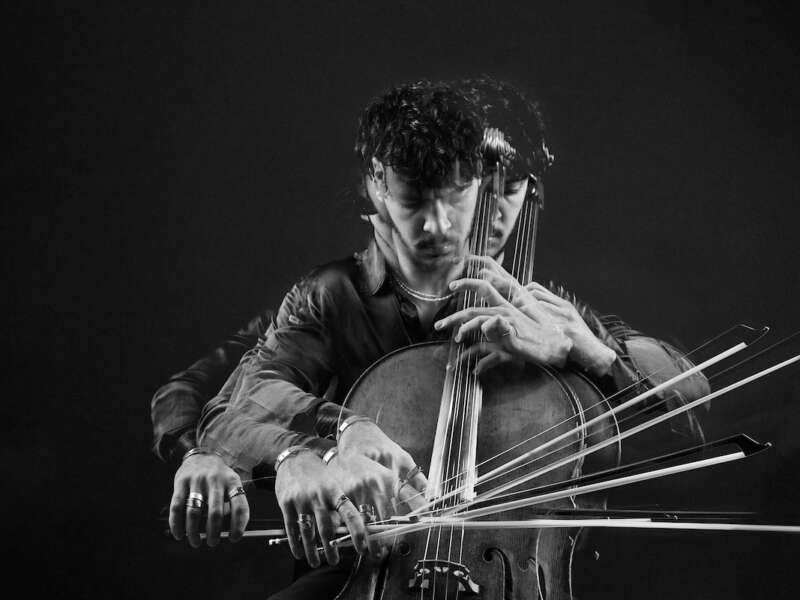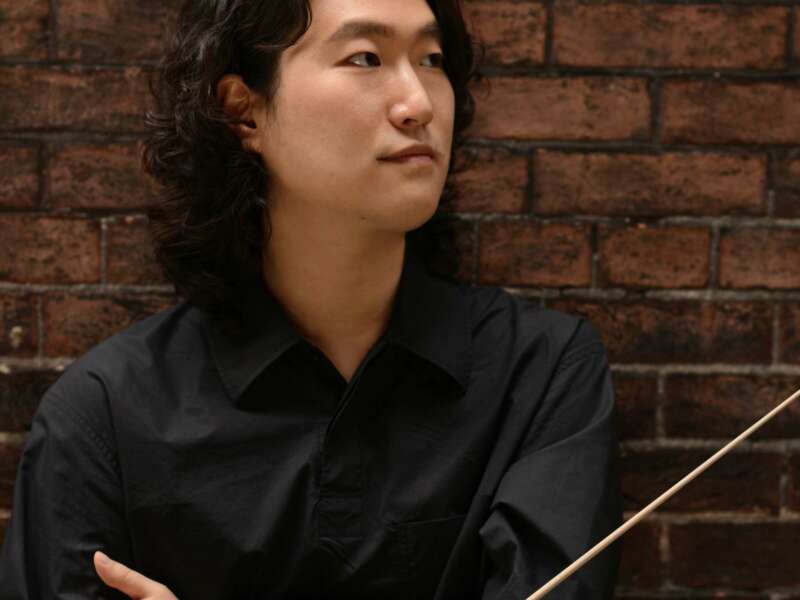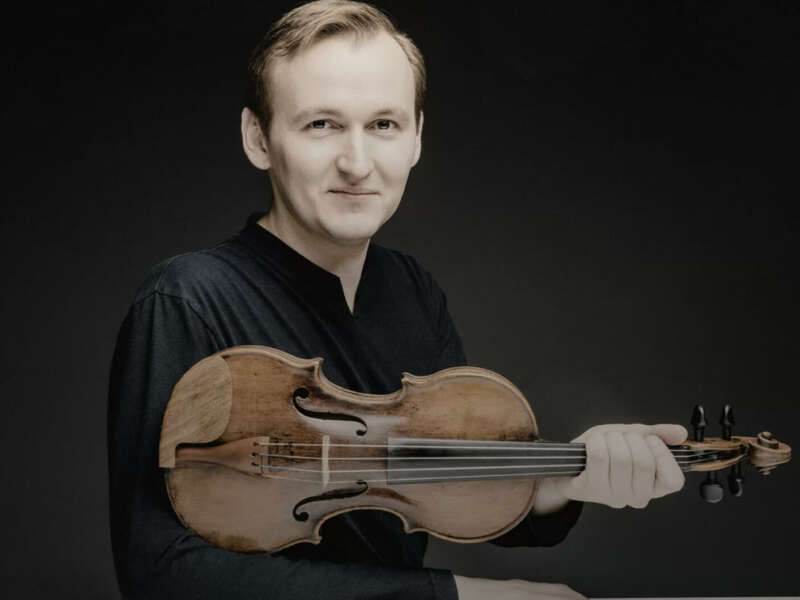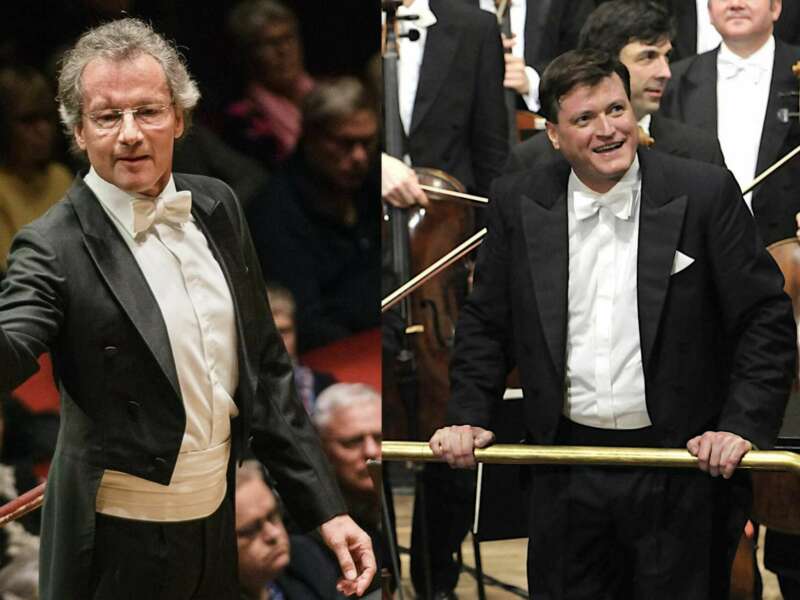Pavel Vernikov Discusses the Momentous Classic Violin Olympus International Competition
Open to participants of all ages and nationalities, six competitions will be held throughout 2024, culminating in a Grand Finale in Dubai that offers a €200,000 first prize
The Classic Violin Olympus International Competition, helmed by Artistic Director Pavel Vernikov, aims to adopt a new approach to the ethos behind competitions within the music industry.
To this end, this contest is doing away with an age limit within its list of eligibility requirements or the inclusion of music professors and pedagogues on the jury. Instead, Classic Violin Olympus, which is bringing a staggering prize fund of €310,000 to the table, is heading in a different direction, offering violinists of all ages and nationalities the chance to go to Dubai in 2025 and present a revolutionary six-part program in front of a 23-member jury board, made up solely of conductors and directors of acclaimed orchestras, festivals, and concert series.
To do so, participants will first have to rank within the top two at any of the six preselection contests that are being held all around the world. Twelve violinists from across the globe will be able to proceed to the grand finale in the UAE.
With applications for the majority of these preliminary stages currently open, The Violin Channel sat down with Vernikov to discuss the motivations behind this project, the realities of its complex organizational process, and the aims he hopes it will achieve.

The Classic Violin Olympus International Competition is one of the latest big events to enter the world of strings. What were your motivations behind the launch of this project and what would you say are its primary goals?
I do agree that it is one of the biggest and that it is genuinely new. In fact, many of my colleagues have spoken to me about how pleased they are that there is something new entering the field. The general concept is very simple. I have participated in many large and small competitions, and unfortunately, all of these competitions, unlike those that were being held 30 years ago, no longer have the same brilliant results that they used to. The reason for this is easy to understand; there are a huge number of contests now, but we always see the same programmes, and the same jurors, with very few exceptions. Professors usually involve their students, and I know several champions who enter a competition every month and a half with the same programme. I think this is a disaster for the development of young musicians, and quite honestly, I think a huge number of competitions exist that I would close. Instead, foundations or institutions that help young musicians, such as through scholarship initiatives, could be opened. Even competitions with big historical names have lost their legendary status. It's all turned into a consumer goods factory, and I strongly believe that something needs to change.
That is what we’re doing with Classic Violin Olympus. With this competition, we have a new programme, a completely unusual programme. Some things have never been done in any competition, for example, asking a soloist to take on the role of a concertmaster of an orchestra so that they can show that they are not just able to perform but that they can lead an orchestra, that they are complete musicians. There is also a contemporary piece by Alexey Shor, and Beethoven’s Triple Concerto, which I believe has never been performed in competition before. It's a symphonic work, but it's also a chamber piece – there are three soloists. There are quite a lot of new things in the competition because we’re trying to change things and offer something different.
Leading up to the grand event in Dubai, there are six competitions happening around the world in Tokyo, Vienna, New York, London, Rome, and Tel Aviv. Can you tell us a little bit about the organisational process of such a large-scale endeavour?
Well, as the Artistic Director, I give advice and recommendations, but the bulk of the organisational work lies on the shoulders of a large and dedicated team who have been doing an extremely professional job. Each of the six qualifying stages is, in fact, an independent and fully-fledged competition with a very impressive prize fund. In addition, the events are not being held in local cultural institutes and small halls, but in the leading music institutes of each of the host countries. These are legendary halls and schools. For example, in London – Royal College of Music; in Vienna – Music and Arts University of the City of Vienna; in Tokyo – Geidai [Tokyo University of Arts], etc. The juries were also selected very carefully, so that there are as few professors as possible and more musicians of different ages and nationalities on each of the boards. Ultimately, of course, we will only be able to judge the success of this process when it is completed and the results are visible, but I am hugely optimistic about the forthcoming qualifying rounds and the Grand Final because the preparatory work has been done on an enormous and very serious level.
The competition is offering its first-prize winners some of the highest prize money among the world’s international strings competitions. How was this able to be made possible?
It seems to me that not only in the world of stringed instruments, but in the music realm in general, we are fortunate enough to be supported by people who believe in big ideas. As you know, a big idea requires big money! For a competition with such an idea and on such a scale, it would be ridiculous if the prize was €30,000 or €100,000, so we worked hard to find people who shared in the prospects of this idea and would be willing to support us. Of course, ultimately, the prize is just a starter pack to help the winners kickstart a career. With this money you can release a disc, book some big halls, or a hundred other things; the possibilities are endless.
What are the qualities your jury is looking for in potential winners this year?
First of all, they will be looking for a musician who can establish a global career. To do this, one must not only be talented and brilliant, but must also have a certain set of qualities: intelligence, possessing a strong constitution, the ability to command a strong stage presence, etc. They must have a degree of charisma that will allow them to surpass everyone else and win the love of the audience. Many people never get a chance to show that they have these qualities, and we want to give them that chance. Above all, however, we will be looking for someone who will impress us with their range and their attitude towards music.
Classic Violin Olympus will see 12 violinists from the regional preselection competitions compete in Dubai in 2025. How did the organising committee decide on Dubai as the location?
Dubai offers many advantages. For one thing, during the dates of the final round, the weather there will be exceptional, which is always an advantage. Apart from that, I think that Dubai is an exclusive location, offering people the very best, not just in terms of holidays but also for cultural development. It has become a fashionable destination for so many fields so why should it not be a top destination for classical music as well? Along with Tokyo, Paris, Vienna, etc.. there is Dubai! Moreover, I strongly believe that we should not limit classical music to its so-called ‘traditional borders’ but should expand its geographical horizons, and with such events, we may encourage the opening of new concert venues and halls for classical music, both in Dubai and elsewhere.
What initiatives do you have in place to ensure transparency and fairness during the voting process?
From the offset, we made the very conscious decision to form a jury board solely made up of conductors and directors of orchestras, festivals, and concert series to ensure that there will be no bias, even on a subconscious level, that may exist when there are professors on jury panels judging their students. In addition to that, I firmly believe that honest jurors are the key to a fair voting process, and that was the mindset behind the whole selection process. I only invited those whose honor, honesty, and musical professionalism I am 100% sure of, because ultimately, although there are many ways to try to impose control – one of the most primitive is to publicly announce who voted for whom – there are still a lot of ways to get around all sorts of restrictions, just as in sports. At the end of the day, I'll do my best to make sure there are no shenanigans during the process, but I can readily say that I vouch for everyone on the jury, completely.
The decision has also been made to remove all age restrictions from the registration criteria. Can you tell us why you made this decision?
There are quite a few new things in this contest, and yes, one of them is that there are no age restrictions. For me, this is a very important element in this competition. Young kids who take part in competitions often win at the age of 13 or 14, but no one thinks about contemporary older musicians. To give one example, the great violinist of the 20th century, Henryk Szeryng, a truly phenomenal violinist, started his career at the age of 40, and absolutely by accident. Rubinstein heard him, I think, in Mexico. If it hadn't been for that meeting, nothing would have happened. He successfully built his career and continues to be remembered in history as a leading violinist. The abolition of the age limit is important to me. I even got a call from a rather famous violinist who is 72 years old asking if it would be funny if he tried to participate. To which I replied that it would be, on the contrary, fantastic. A career is like love, it can come at any age! A lot of great musicians reached their peak at 60, like Oistrakh and Richter.
Before, there used to be few musicians and huge audiences, but now it's the other way around. This competition is one of the attempts to look at modern musical trends from a slightly different angle, a kind of revolution and also an evolution. At the end of the competition, I would like to have knowledgeable people talk to the finalists and winners, so that audiences can see that we have deep and interesting personalities in front of us, not just musicians who know the ‘whims’ of Paganini. I'm looking for a lost identity. I want us to stop and reflect for a while. There is now a widespread ‘rejuvenation’ of competitions, to the point of absurdity. More and more young musicians are participating, turning the contest into a sporting competition. In doing so, we lose the opportunity to bring out the few ‘huge’ personalities, such as Jacqueline du Pré, to name one example.
This is not an attack against the young in favour of the old, it's an attempt to find a gifted individual at any age, irrespective of how young or old they are. It's not going to be a comparison of who played faster. A 16-year-old will almost certainly be able to play faster than a 50-year-old, but this is not a criterion; we're not approaching the competition as a sporting event.
The program for Classic Violin Olympus stands out as a very unique, with competitors being analyzed on every aspect of their skillset and asked to perform works from a wide variety of eras. Could you explain a bit more about it and the thought process that went into its design?
I tried to combine tradition with innovation. We will aim to bring out additional skills and qualities – not just technicality and musical training, but the revelation of the musicians’ personality itself.
The modern era is represented by the works of Composer-in-Residence Alexey Shor. This is very melodic music, that is technically demanding but is also enjoyable to listen to. This is a nice change because sometimes you find very interesting and experimental music that is not very understandable to the public. Ultimately, musicians are people who perform for the public which is something that we need to keep in mind. Then there’s the Beethoven triple concerto, where we’re trying something completely new. At other competitions, you find performances of chamber music with a second soloist, for example, but to play Beethoven's triple concerto with an orchestra… that's chamber music, but it's on the edge. You have to play as three soloists, and then there’s also the orchestra! To have a soloist play a very serious solo and lead the orchestra, that's something new. This is not just a player we’re talking about, but a person who can have a dialogue with the musicians, the orchestra, the conductor… it's all a little bit different.
I also wanted to include something which you usually find in an exam when you speak in front of a professor, or when you go for a job interview. It’s not going to be the same, but it’s something in my own style, a light dialogue, that will give us that same opportunity to see a little bit of the intellectual side of our participants — beyond the strictly musical skill, to see how much they know about art and life. They’ll perform their pieces, and then the jury members can ask questions afterward, like a ‘mini colloquium’ so to speak, on a free topic. This won't decide the prize, of course, but the jury will consider it as well.
In addition to the prize money, what else do you feel this competition will be able to successfully provide to your laureate’s career success?
Another thing that Classic Violin Olympus is doing differently from most competitions is that our prizes aren’t just limited to money. While we are offering some of the biggest prize funds in the world, each of the 23 members of our jury board shall also give those participants they find most promising the chance to join them on stage at one of their upcoming concerts, which, as anybody will tell you, is probably more valuable than the prize money itself in terms of experience, exposure, and networking opportunities.
In addition to that, the contest itself will shine a huge spotlight on each of the performers because it is a massive event that is being covered by some of the biggest media companies in the world, including Euronews, The Violin Channel, Medici.tv, and Bachtrack, to name a few. They’re going to be reporting on the contest, broadcasting it live to all corners of the world, holding interviews with the participants, etc, so there will be many, many eyes on these violinists. Among them, of course, will be conductors and concert organizers who may be interested in working with the contestants, especially if they put on a good showing of themselves. Then there’s also the experience of the whole event and the feedback, which may be one of the most fruitful things in the long run.
Ultimately, what result awaits us at the end is not known. If a person gets a lot of money and concerts, that’s already a very good result. But whether it will be astounding, whether we will discover a new Szeryng, we cannot know. We'll see how it works out.
The Classic Violin Olympus International Competition will be held in Dubai, UAE, from the 22nd to the 28th of April 2025. Applications for each of its six preselection contests are currently open. For more information please visit the official website at classicviolinolympus.com.
may 2024


